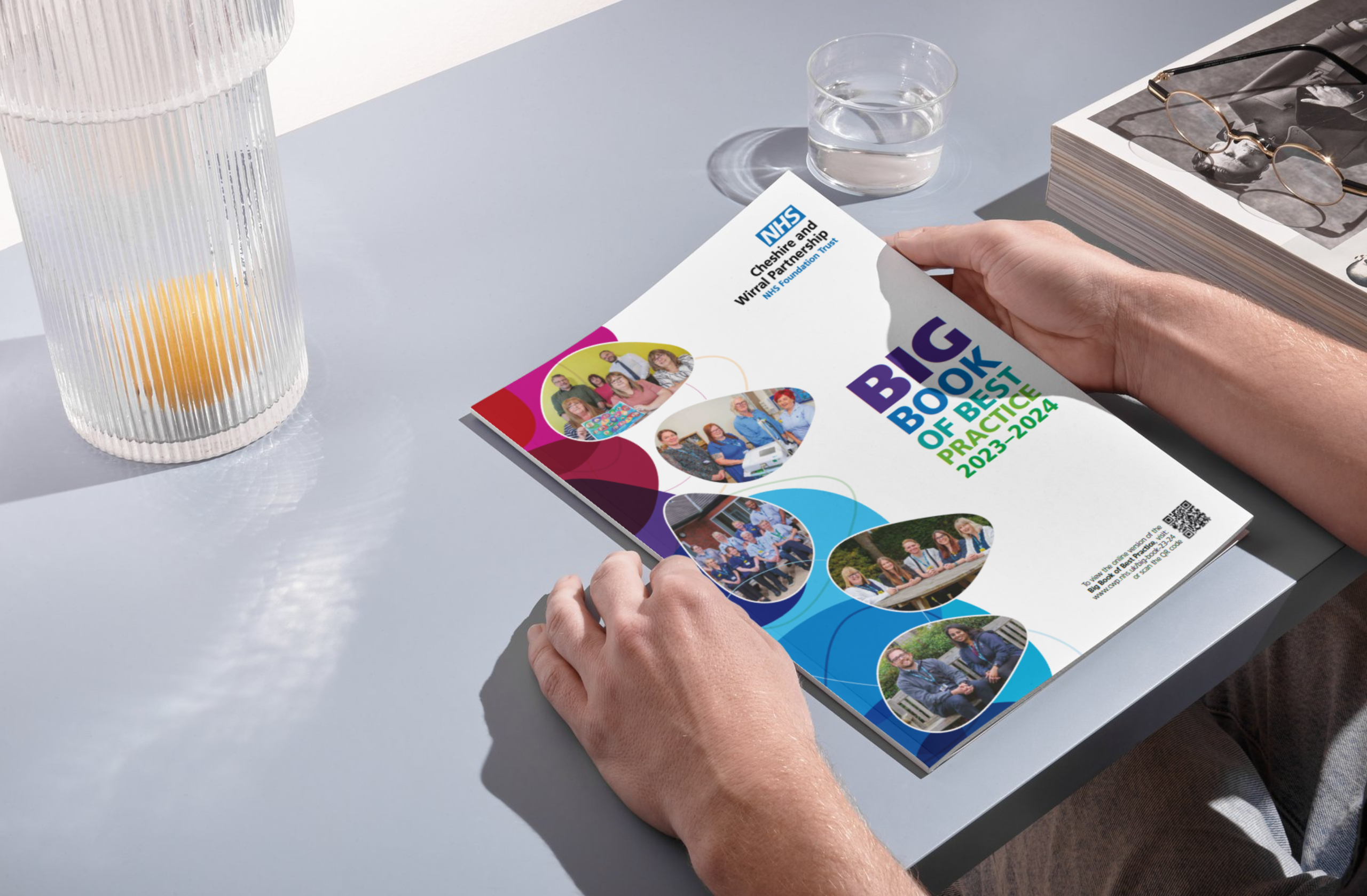Below you can view all the entries that made it into the Big Book of Best Practice 2023-24 from the neighbourhood care group.
Contact details for each project can be found within the entries below. For more information about the Big Book of Best Practice, email cwp.

Contact: robbie.wade-owen@nhs.net
What did we want to achieve?
The primary objectives were to increase awareness of the Single Point of Access (SPA) service, receive feedback, and create informative materials to aid communication. The SPA team has successfully achieved its initial objectives of increasing awareness and showcasing the excellence of the service. Through collaboration with GP surgeries, consistently positive feedback has been received, reaching 100% satisfaction in both 2023 and 2024. In response to the need for improved community care and reduced hospital admissions, the SPA team has been dedicated to enhancing patient care through effective coordination and communication.
What we did
The team implemented a comprehensive approach, which involved:
- Coordination - established seamless communication channels with hospitals, GPs and community care providers.
- Assessment - conducted thorough patient assessments with local hospitals that are discharging patients to tailor community care plans, and advised them of how the SPA team can help.
- Stakeholders - communicated via different methods to stakeholders including hospitals, GPs, community care providers, and, most importantly, patients. This includes presentations at the hospital and GP surgeries.
- Implementation of a team poster with a visual representation of the team structure.
Results
The success is quantified through tangible results:
- GP satisfaction - consistently received 100% positive feedback.
- GPs have expressed appreciation for the ‘wonderful’ and ‘helpful’ service - the positive feedback reinforces the success of the approach.
- The new team poster has helped to emphasize team details and services offered, aiding communication with other services.
Next steps
Building on the team’s achievements, the plan is to refine strategies based on continuous evaluations. The team is exploring opportunities to expand reach and impact. The coming year will focus on sustaining momentum and implementing lessons learned by attending Care Community team meetings and GP meetings to help improve communication and collaboration, and set milestones to ensure continued success. The team actively shares experiences, presenting at the Countess of Chester Hospital every month to demonstrate how the service improves patient care. With a proven track record, the team is exploring options for expanding the project, potentially collaborating with new partners, such as a new falls assessment service pilot with local GP surgeries.
The overwhelmingly positive feedback and successful presentations demonstrate the significant impact the SPA team has made in enhancing patient care.
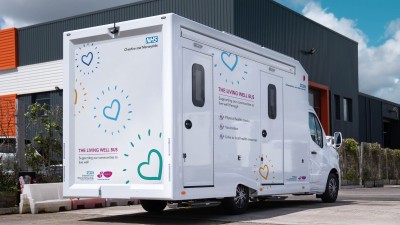
Contact: geraldine.
What did we want to achieve?
A ‘proof of concept’ in-reach project, seeking to improve access and maximise uptake of childhood and adult immunisations in the migrant population. The migrant population entering the UK is regarded as a vulnerable population, often unprotected by vaccination and travelling from parts of the world with high rates of vaccine-preventable diseases. This population often lives in the UK in crowded settings where infection may spread, meaning they are at increased risk of vaccine-preventable diseases. Additionally, there is a significant risk of infections then spilling over into the wider population, in which there has been steep decline in childhood vaccination coverage in recent years.
What we did
The team worked in partnership with local authority public health colleagues within Liverpool and St Helens initially, then Cheshire East, Knowsley and Halton, to identify nine designated migrant hotels within the Liverpool, two in St Helens, two in Cheshire East, one in Knowsley and one in Halton. These hotels are either large occupancy hotels or in geographies where immunisation uptake is low and there is a higher prevalence of preventable disease.
The team worked to proactively identify, advocate, promote and administer any outstanding childhood and adult immunisations to migrants residing in temporary hotels in the Liverpool and St Helens areas, and latterly Cheshire East, Knowsley and Halton, by:
- Offering / administering outstanding immunisations on an opportunistic, outreach basis to individuals, as clinically appropriate.
- Ensuring the individual is aware of any further immunisations required and how to access them.
- Proactively advocating and promoting the advantages of the UK routine immunisation programme and potential risks of not being immunised.
- Proactively signposting individuals to their GP to arrange an appointment at the earliest opportunity to receive routine immunisations if it was not possible to immunise the individual that day.
- Proactively signposting individuals to their GP for completion of schedule, where multiple appointments at four-week intervals are required.
Results
- 138 clinics took place.
- 872 individual contacts were made.
- 380 individuals were vaccinated.
- 768 vaccines were administered.
- 250 additional advice encounters took place.
Next steps
Following on from the successful pilot, local commissioners asked the service to step up this bespoke service again on 12 February 2024 for the inter-seasonal period of February and March 2024, this time including all nine localities across Cheshire and Merseyside, and the Roma community within the Liverpool area.
Team: Care Community Teams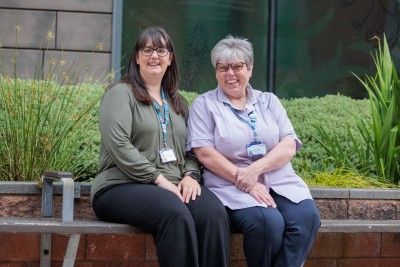
Contact: dawn.
What did we want to achieve?
Patients needing to have blood tests in their own homes will receive a visit from the Care Community Team (CCT). All blood test referrals were being loaded onto the same caseload that the community nurses use on EMIS and any patient who is on the nurse’s caseload must have a full assessment of their needs, which takes roughly one hour to complete. If a patient comes to any harm whilst they are on the nurse’s caseload and an assessment of needs has not been completed, it could be deemed as harm whilst under the care of the nurses. Patients needing a one-off task like a blood test do not need to have an assessment of needs completed.
The aim was therefore to find a way of separating the nursing and blood test referrals on EMIS in order to clearly identify the referral was for a blood test and that a full assessment of needs does not need to be completed.
What we did
It was decided that the best way to separate the referrals was to create a new ‘community phlebotomy caseload’ on EMIS for each CCT to use solely for the blood tests referrals. This idea was presented to the clinical leads, and the Neighbourhood governance and care quality groups, who collectively approved the idea. The team then liaised clinical systems in IT to create the new caseloads and face-to-face training sessions for each of the CCTs were arranged, to show them how to use the new caseloads.
Results
Following a successful five-month trial period, the community phlebotomy caseloads are now fully embedded into the CCT’s daily tasks. Now the team has the separate caseload, they are able to:
- Separate community nursing and community phlebotomy referrals.
- Produce data reports on how many blood test referrals are received, which we were unable to do previously.
- Evidence that a quarter of referrals received into the CCT are for blood tests.
- Evidence the potential time saved by the nurses, which would have been 1,718 hours over the five-month period and equates to approximately two full time nurses across the CCTs.
Next steps
The project has now come to a close and the community phlebotomy caseloads will remain in place indefinitely for the CCTs.
The team has been able to use the knowledge gained by participating in this project to support other ongoing projects which require new caseloads to be built.
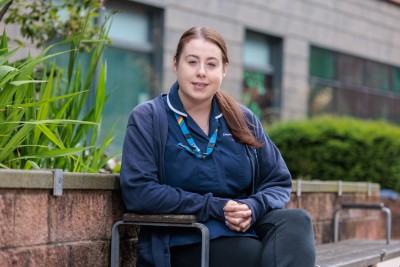
Contact: faith.
What did we want to achieve?
Following the revised diabetic training programme for healthcare support workers, along with the updated diabetic policy, the Community Care Team (CCT) in Ellesmere Port West felt that the current documentation system and diabetic authorisation forms for diabetic patients in the community did not support staff, patients or their families. Therefore, the CCT wanted to change this to make this system more person centred and ensure staff feel safe, supported and are given the correct information when giving diabetic care.
What we did
The previous documenting system with community diabetic patients included documenting the visit on EMIS and also on a medication administration sheet kept within the patients home for business continuity.
GPs or diabetes specialist nurses (DSNs) would provide the medication authorisation form which was also kept in the patient’s home. The team continues to document visits on EMIS, however they have now created a diabetic booklet for community patients which includes information on diabetes, insulin and insulin administration, a flowchart on what to do if a patient is experiencing a hyper or hypoglycaemic event and information on ketone testing and what the ketone results indicate, all within a neat, clear booklet. It also includes a new administration chart for documenting diabetic visits, along with a new authorisation form for GPs / DSNs to complete.
Results
All staff, particularly healthcare support workers who have completed the diabetic training, now feel more supported interpreting blood glucose results, administering insulin and caring for a diabetic patient. Families and patients also feel more supported to become independent with diabetic care as they are now provided with supportive information within a booklet. The new diabetic authorisation form has now become more person-centred and gives staff more information on diabetic patients, also supporting prescribers in providing the correct information needed for healthcare professionals to safely administer insulin, due to its clear layout.
Next steps
The booklet is reviewed regularly to ensure it includes the most accurate, up-to-date information to support healthcare professionals and diabetic patients within the community. The diabetic training for healthcare support workers continues to run and develop, which supports CCT capacity with patient visits and gives healthcare support workers the opportunity to develop and learn new skills and competencies.
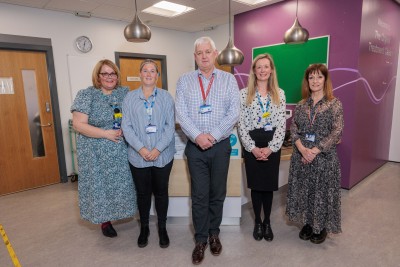
Contact: v.
What did we want to achieve?
Antimicrobial resistance poses a significant global threat to public health, especially as antibiotics underpin routine medical practice. The aim of this quality improvement (QI) project was to ensure antimicrobial prescribing follows the Cheshire antimicrobial formulary, to develop an audit program with standards, ensure learning is fed back to prescribers across GP Out of Hours (OOH) and strengthen antimicrobial stewardship (AMS).
What we did
- Set up a quarterly audit cycle of antimicrobial prescribing across GP OOH services.
- Worked with the company that provides the electronic care record (Adastra) to set up an automated antimicrobial report that could be produced quarterly.
- Developed audit standards for antimicrobial prescribing that could be used across GP OOH.
- Provided antimicrobial resistance and stewardship training at the antimicrobial study day.
- Produced an antimicrobial resistance infection prevention and control (IPC) newsletter to coincide with World Antimicrobial Awareness Week.
- The IPC team also used CWP communications channels to promote AMS messages.
Results
Audits are established and completed quarterly with input from GPs, pharmacy and infection prevention and control. During the 2023/24 quarter three audit period, 24% of encounters issued an antimicrobial. In quarter two, this was higher at 57%. The audit results showed that 99% of prescribing is for formulary antimicrobials. A GP and pharmacist reviewed antimicrobial prescribing and developed learning points which are fed back to prescribers.
Several lessons were learnt; six patients were prescribed antimicrobials but did not meet the threshold for antimicrobial therapy. One patient was prescribed a longer course length than recommended. Six patients had the incorrect antimicrobial prescribed for the indication.
Broad-spectrum antibiotics increase the risk of antibiotic resistance and their prescribing must make up less than 10% of all antibiotics. The quarter three audit results showed broad-spectrum prescribing was at 7%. In January 2023, Medicines and Healthcare products Regulatory Agency (MHRA) issued revised advice on systemic fluoroquinolones, a class of antibiotic. In quarter three of 2023/24, no fluoroquinolones have been prescribed, suggesting that the MHRA safety alert is being adhered to across GP OOH services.
Next steps
The quarterly audit will continue with key lessons being fed back to prescribers. The team will review antimicrobial pre packs stocked at GP OOH to ensure these are for the correct shorter course lengths as per NICE guidance, to reduce risk of antimicrobial resistance. They will also review if the number of patient consultations resulting in antimicrobial not being issued could be audited to promote positive practice. The message that a shorter course length is safer will be shared across GP OOH, with a set of visual aids that highlight NICE-recommended treatments and promote key messages of safety around treatment course lengths. The team also plan to engage with NHS England AMS working groups to develop further metrics to monitor practice at a national level.
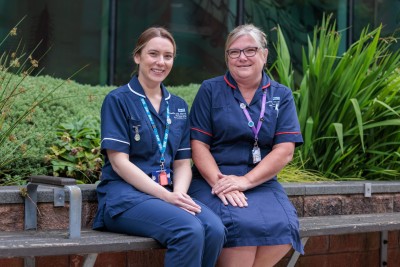
Contact: andrea.tuck@nhs.net
What did we want to achieve?
To create a unique learning environment for all new starters to have one-to-one support when delivering patient care either in the patient’s home or in a clinic setting. Community nursing is rapidly developing, with a growing group of patients with multiple, complex health and social care needs. New starters to community nursing can find this environment challenging and at times overwhelming.
The core skills required to be a community nurse are vast and varied. Training is offered and undertaken, however, the nurse is required to demonstrate their competencies and feel competent before they can safety deliver care to patients in the community.
A large gap was identified in the team’s training offer to staff, with no clear pathways to follow, particularly for new starters. This was discussed with the wider operational leads, and it was acknowledged that clinical training was critical to support and retain new staff.
What we did
The team has actively listened to its community nurses’ needs and from feedback, a clinical practice development nurse (CPDN) post has been created. The CPDN helps to ensure that colleagues are well-prepared to manage a multitude of complex, holistic care needs, thereby keeping patients safe and helping staff to feel confident and capable in their abilities. The CPDN role has proven how one-to -one support can benefit colleagues with a range of practice developments. Whilst classroom-based education is helpful, on its own it is not meeting the needs of colleagues in the real-world environments they work in. The CPDN is a specialist role that enables support, learning and development of clinical skills and competencies, unique to community nursing. The CPDN is a true advocate for new starters with a focus on wellbeing, as well as clinical practice. The reflective supervision that occurs to and from home visits in a safe environment offers huge value to colleagues, enabling a multitude of learning opportunities. To support further, a pathway was developed in the form of a new starter ‘roadmap’, to give clear guidance in the team’s offer to support all new staff.
Results
Feedback from colleagues following the clinical skills sessions shows these were highly-rated, with a rating of four or five out of five from all participants. Qualitative feedback included:
- “Great refresher. Brilliant training session.”
- “Feel I can look after patients more safely.”
- “It’s enhanced my existing skills and competence.”
- “I’m better able to offer person-centred care.”
- “My confidence has improved with palliative care.”
- “Practical information to improve knowledge and skills.”
Next steps
The next steps will be to undertake an operational research qualitative study to gain insight into the experiences of colleagues who have been supported by the CPDN. Following evaluation, a business case will then be produced to expand the number of CPDNs within the Neighbourhood care group, with an aim for one in each of the three localities.

Contact: lisa.beedles@nhs.net
What did we want to achieve?
The aim was to implement a quality assurance system across the neighbourhood care group to ensure the medicines policy is being adhered to in relation to the safe and secure handling of medicines, by following the four medicine governance principles:
- Establish assurance arrangements – say what we do and why we do it.
- Ensure capacity and capability – train people and ensure they have the necessary competencies and resources.
- Seek assurance – do what we say and prove it.
- Continually improve – improve what we do.
What we did
The team reviewed and adapted the inpatient and national safe and secure handling of medicines audit tools to ensure it was relevant for use across Community Care Teams, GP Out of Hours and CWP’s three GP Practices (Old Hall, Willaston and Westminster). CQC medicine management reports were reviewed to ensure the audit tool incorporated the correct questions. The team collaborated with service managers to gain feedback on the tool and then piloted this. The audit tool was extended to include checks on patient group directions and FP10 prescription forms. A system was development to RAG rate services (green, amber or red) where compliance issues are identified to enable managers to more easily visualise how their services were rated.
Results
There is now an annual audit programme set up across the neighbourhood care group, which includes the three CWP GP surgeries. Each service manager is given an individual action plan where compliance issues are identified. Some positive outcomes of this audit programme include:
- Patient group directions (PGDs) e-learning championed and made available to all services working with PGDs.
- The audit highlighted a lack of oversight of the PGDs being used by GPs. This led to the development of a standard operating procedure (SOP) outlining the process for obtaining and authorising nationally or regionally-approved PGDs and national protocols. This enables services to be more responsive to utilise national PGDs where at-pace delivery is required.
- All anaphylactic shock packs are safely stored with appropriate room temperature monitoring in place.
- Where fridges are in place, these are monitored daily and appropriate action taken when excursions arise.
- All front-line staff have more awareness of the risks to medicines being stored in cars and how they should be securely transported from team bases to patients’ homes.
- All services have access to pharmaceutical waste bins.
Next steps
Cheshire place leads have given positive feedback about this project and are aiming to roll this out to the other 73 GP practices across Cheshire. The aim is to continue with the annual audit programme across the neighbourhood care group and create an annual report, which can be fed into the care group governance structure. The team also aims to work with digital leads to develop a medicines audit tool and dashboard to ensure the safe and secure handling of medicines.
Team: Single Point of Access
Contact: robbie.wade-owen@nhs.net
What did we want to achieve?
The Single Point of Access (SPA) team has successfully integrated community nurses into the role of community nurse liaison. This strategic move enhances the service’s ability to liaise with hospital nurses, ensuring seamless information transfer to Community Care Teams (CCTs), and ultimately, timely and appropriate patient care. This progressive step ensures a holistic approach to patient care and strengthens the bridge between hospital and community services. The objectives include not only maintaining high patient satisfaction but also improving the efficiency and accuracy of information flow between hospital and CCTs.
What we did
The introduction of community nurses as liaisons has further refined the approach:
- Community nurse liaison - facilitating effective communication between hospital and CCTs.
- Information transfer - ensuring accurate and timely transfer of patient information.
- Timely care delivery - enhancing the speed and appropriateness of patient care in the community.
- Stakeholders - the addition of community nurses strengthens collaborations with hospitals, community care providers and patients, fostering a more integrated healthcare system.
- Implementation – those in newly-appointed community nurse liaison role have undergone specialised training from the SPA team to seamlessly integrate into the team's workflow, creating a more cohesive and interconnected system.
Results
Early results show improved coordination, faster information transfer and enhanced community care delivery.
- Learning sharing – the team is actively sharing their successful integration of community nurses in the SPA team at various healthcare forums, highlighting the positive outcomes in improving patient care.
- Expansion plan – the team envisions expanding the Community Nurse Liaison model, maximizing the benefits of this innovative approach.
- Importance in the NHS - the introduction of community nurse liaisons from the CCTs is pivotal in aligning with the NHS's overarching goal of integrated and patient-centred care. This approach streamlines communication, reduces redundancies and ensures that patients receive the most timely and appropriate care, ultimately contributing to a more efficient and effective healthcare system.
Next steps
The SPA team’s focus includes the continuous refinement of the community nurse liaison role, ensuring optimal effectiveness. The aim is to measure and adapt based on ongoing evaluations. The coming year will see the consolidation of the community nurse liaison role, with an emphasis on refining processes for maximum impact. The team also plans to develop a new feedback form for CCT colleagues to ensure open and honest feedback is obtained and best practices are met. The SPA team also plans to attend CCT patient handover meetings to gain a more holistic view and approach to the patient’s journey.
Team: Musculoskeletal Physiotherapy Service
Contact: sharon.
What did we want to achieve?
Musculoskeletal conditions like back pain cost the NHS £4.76 billion a year, with 60% of the adult population experiencing low back pain at some point in their lives (NICE). Patients struggling to self-manage their persistent back pain will source services such as expensive scans, spinal injections and pain medications. Active for Life aims to deliver an appropriate exercise programme, pain education and psychological support to empower patients to self-manage their persistent back pain effectively in the long-term, improving quality of life and reducing demand on future services.
What we did
Active for Life consists of a two-hour class every week over a five week period, led by a physiotherapist with an interest in persistent back pain. Classes include a gentle circuit of exercise and functional movement, floor-based exercise, a weekly talk and discussion around spinal anatomy and the importance of movement and exercise, pain science, lifestyle awareness, strategies to manage pain and goal setting, which focus on recovery and moving forward. Classes remain small to support, encourage, reassure, improve confidence and reduce fear of movement, alongside supporting the psychological and social impact of their condition in a safe and supportive environment, where patients can also share ideas and support each other as they move towards self-management, rehabilitation and recovery.
Results
Outcome measures were taken pre and post-course using the Pain Self Efficacy Questionnaire (PSEQ) to assess confidence in activity, despite pain. The Roland-Morris Disability Questionnaire (RM) was also used to assess the physical difficulties of daily living with persistent back pain.
| Course 2 | Course 3 | Course 4 | Course 5 | |
|---|---|---|---|---|
| PSEQ scores | 80% improvement | 100% improvement | 100% improvement | 80% improvement |
| RM scores | 50% improvement | 100% improvement | 80% improvement | 80% improvement |
Feedback from patients has included:
- “I have thoroughly enjoyed the course. I am now able to continue with everyday life doing my exercises and hopefully be pain free in the future.”
- “I’ve finally gained confidence to improve. Thank you - this has been great for me.”
- “I am due to have spinal injections but am considering cancelling as my pain is diminishing and I was able to carry my grandchild for the first time with minimal pain.”
Next steps
The next steps will be to develop the class structure and content with class leader education. The team would also like to offer physiotherapist staff training and skills development to manage persistent back pain patients effectively. The aim is to increase the number of courses available to reduce patient waiting lists.
Honorable mentions
With nearly 100 entries received for the Big Book of Best Practice 2023-24, we have unfortunately been unable to include every entry in the final book. However, many of the projects – despite not being selected for full publication – deserve to be celebrated for the fantastic outcomes achieved.
You can view the honorable mentions for the neighbourhood care group below:
- Community Health Support Team - Night care services
- GP Out of Hours Front Door Services Team - Activation of Electronic Prescribing for Western Cheshire GP out of Hours (EPS)
- High Intensity User Services Team - High intensity use service
- Care Community Teams - Upskilling healthcare assistants releasing time to care
